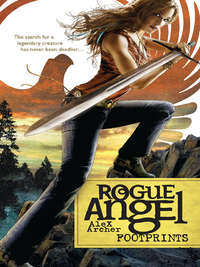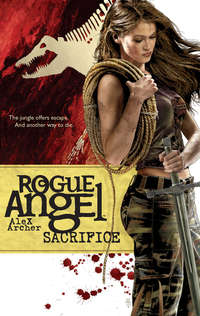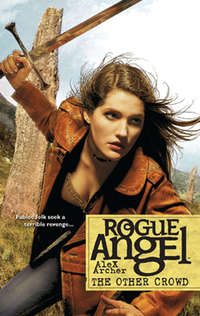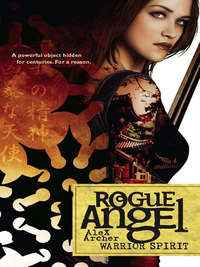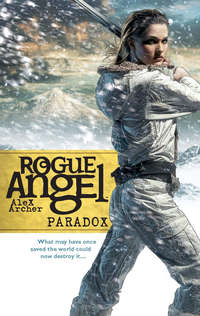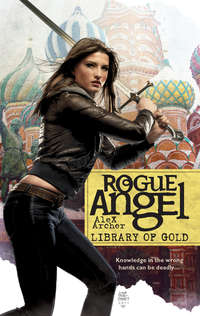
Полная версия
Beneath Still Waters
Behind him, the Mustangs followed.
The next few moments were some of the most hair-raising he’d ever experienced in his career as a fighter pilot. He tossed his aircraft all over the sky, despite its heavy load, doing everything he could to throw the Americans off his tail. He clung to the mountains where and when he could, trying to get his pursuers to make a mistake as they twisted through the air, hoping against hope that one if not both of them would slam into the nearby peaks and leave him and his charge in peace to continue their mission.
It was wishful thinking and, like most wishes, didn’t come true. The Mustangs stayed behind him the whole way, firing at his aircraft when the opportunity presented itself and content to stick with him when it didn’t. Bit by bit their machine-gun fire began to whittle away at the frame of his aircraft.
At some point one of them was going to get lucky, hit the fuel tanks or aileron controls or even the ammunition that was stored aboard for the forward and aft machine guns, and it would be all over. There would be nothing left of him and Major Adler but a smear on the landscape.
He had to do something, but what?
The solution, when it came to him, was surprisingly simple and, dare he say it, rather elegant.
He’d spent all this time and fuel trying to get away from the Mustangs. What if he got in close instead? The only shots that had been fired had come from the rear of his aircraft, and he would bet that the pilots of the American aircraft were convinced by now that the forward weapons were inoperable. Add to that the fact that all he’d done was run, and it was a good bet that the Americans thought him little more than a sitting duck. They wouldn’t expect him to suddenly turn and bring the battle to them. If he could catch even one of them napping, he could even up the odds a little.
It was worth a try.
He quickly explained to Adler what he was going to do.
“Are you insane?” the major cried on hearing the plan, to which Brandt replied that he might very well be. It didn’t matter, though, because they were going to try it whether Adler liked it or not.
He kept running, waiting for the right moment.
It came sooner than he expected.
Ahead of him loomed another cluster of rising peaks, with a narrow pass between two of them. It was just the kind of terrain he’d been using for the past several minutes to try to shake his pursuers. If the American pilots were as good as he thought they were, they would be expecting him to make for that pass like a rabbit for its warren.
Brandt intended to disappoint them.
Instead of diving for the space between the peaks, Brandt pulled back on the stick, sending the Junkers into a steep climb as if he intended to loop the plane in a big circle to try to get behind the mountains. The maneuver might have been worthwhile if he’d been flying one of the newer fighters such as a Focke-Wulf or a Messerschmitt, but in an overloaded night bomber like the Junkers he might as well have been standing still.
Behind him, the faster and more agile Mustangs moved to intercept.
This was the crucial moment. If the Americans caught him before he managed to roll out again, he would be moving perpendicular to their line of travel and would present nearly the entire surface of his aircraft to their guns. He didn’t want that to happen.
“Hold on!” he shouted as the plane reached the apex of its climb. He completed the classic Immelman Turn maneuver by rolling out at the top and rushing back in the direction he’d just come from.
One of the Mustangs was caught rushing toward him, trying to get into the very position he’d been worried about, and made the mistake of hesitating for a split second as he realized the two planes were now flying directly toward each other at impressive speeds.
Brandt didn’t make the same error. He began firing as soon as the Junkers rolled out of its turn, slamming the Mustang with a barrage of fire from the Junkers’s forward-facing 20 mm cannons. Tracers whipped between the two aircraft as the American sought to respond, but Brandt had been just a hair quicker off the mark and drilled the other aircraft with gunfire even as it began to take evasive action.
One second the Mustang was racing toward him, the next he was doing everything he could to get up and over the exploding cloud of debris that had once been an American aircraft.
Brandt let out a shout of triumph.
His exultation was premature, however. In focusing on the lead aircraft he’d lost sight of the second, and that came back to bite him as the American roared up from below. The pilot had anticipated Brandt’s roll-out, diving and then swooping back up to come at the Junkers and its unprotected belly. Bullets ripped through the port engine, the wing and the cockpit as the Mustang flashed past. One of the bullets took a chunk out of Brandt’s calf, and he gasped in pain; he could feel blood course down his leg and into his boot.
The enemy gunfire shredded the controls for the wing flaps and set the engine alight, causing the plane to yaw heavily to the left. Fortunately Adler’s guns roared to life in that moment, catching the Mustang as it raced past and sending it spiraling out of control to crash into the nearest mountainside.
“I’m hit, I’m hit,” Adler called, but Brandt couldn’t do anything to help him because not only was he hit himself, but he had his hands full just trying to keep the plane aloft. He fought the controls, hands straining on the yoke, feet pumping the foot pedals in an effort to force the damaged hydraulics to work long enough to get the ailerons and flaps trimmed the way he needed them. At the same time, he maneuvered through the maze of snow-covered peaks, desperately trying to avoid ending up like their recently departed foes. He could hear Adler thrashing around in pain but had no choice but to block it out as he concentrated on keeping them both alive.
By the time he managed to get the aircraft level again, Adler had gone quiet and still. Brandt knew what that meant; Adler was either dead or, at the very least, too wounded to be of any help. For the first time Brandt noticed the freezing air flowing in through the holes in the cockpit floor and canopy, chilling him to the bone but helping to keep him from slipping into shock from his own injury. Shock was probably the least of his worries, for the plane was losing altitude fast and the rushing winds were fanning the flames in the port engine into a veritable bonfire. Brandt didn’t know which would be worse, slamming into the side of a mountain or being blown to bits when the engine exploded. Right then, both seemed like a possibility.
He racked his brain for a solution to the problem facing him and came up with…nothing. All he could do was fight to keep the plane in the air and pray for a miracle.
Then he saw it.
A few miles ahead of him was the frozen surface of a long, narrow glacier.
If he could get to it, he could attempt a landing. He knew his chances weren’t good. With a fully operational aircraft it would be a difficult feat. With the mangled wreck that he was flying it was going to be nearly impossible, but what other options did he have?
None.
You can do this, he told himself.
He was coming in too hot and too steep, so he needed to bleed off some of his airspeed and he needed to do it immediately. He dropped the flaps, feathered the engines and tipped the nose up slightly to create more resistance as the plane continued what could best be described as a controlled fall out of the sky.
The Junkers wanted to drag to the left, but Brandt fought the stick, doing everything he could to keep it lined up on the glistening surface of the glacier, now dead ahead of him.
Come on, baby! Keep it in the air just a few more minutes! he urged.
As Brandt drew inexorably closer, he hit the switch that controlled the landing gear, only to hear the steady drone of the alarm warning him that the hydraulics had failed.
He cursed a blue streak even as he reached over and began turning the crank that would lower the wheels by hand. By the time he was finished he was almost to the glacier and little more than five hundred feet in the air.
It was going to be close.
Brandt continued to push the aircraft on, demanding that it stay airborne for a few more seconds, just long enough to get him past the trees lining the shore and over the ice itself.
Fate took pity on him, for the aircraft did just that, sailing over the tree line with barely inches to spare and flying toward the ice in front of him.
You’re only getting one shot at this. Make it count, he told himself.
Brandt kept the nose up as best he could as he came in, knowing to do anything less would be disastrous. He reached out and killed the engines as the wheels made first contact with the ice, the whole aircraft bouncing once, then twice, before settling down and racing toward the opposite end of the glacier.
Now Brandt had a new problem on his hands: how to stop the lumbering wreck before it crashed into the shore on the far side. He pumped the brakes while holding the yoke steady, but it was little more than throwing cupfuls of water on a raging forest fire. He was going to stop or he wasn’t, and there was little he could do about it either way.
He was lucky that the glacier was several miles in length and he had plenty of room to run. Gradually the plane began to slow and finally it came to a skidding halt in the middle of the glacier.
Brandt leaned back against the seat and breathed a sigh of relief.
The sound of the ice cracking beneath the weight of the aircraft was a thunderous boom, and instantly he realized his mistake.
He hadn’t set down on a glacier at all, but the frozen surface of a mountain lake!
With a lurch, the nose of the aircraft dropped several feet as the ice beneath the wheel struts gave way. Brandt shouted in fear and scrambled to open the cockpit canopy, knowing he had to get out of the aircraft before it slipped beneath the surface of the icy water or he was as good as dead.
He quickly unbuckled the safety belt holding him in his seat and grabbed the latch to eject the canopy, giving it a good yank.
Nothing happened.
He did it again, pulling harder this time, but it still wouldn’t budge.
The safety latch!
Removing the safety was normally the job of the observer, as it was above the rear panel in that section of the compartment, which was why Brandt had nearly forgotten about it. He twisted in his seat and looked into the rear section of the compartment.
Adler was dead, just as he’d suspected. He was still buckled into his seat, however, which would make getting past him to the safety latch a little bit easier. Brandt began to squeeze around his own seat, preparing to do just that when there was another splintering crack and the plane lurched downward.
Except this time it kept going.
Water began filling the cockpit through the bullet holes in the canopy as the rest of the ice beneath the Junkers gave way. The crippled aircraft dropped into the icy waters of the lake, heading for the bottom.
Even then Brandt wasn’t prepared to give up. He pulled himself back into his half of the compartment and climbed onto his seat, ignoring the pain from his injured leg as he began pounding at the glass above, desperately trying to break it. The cockpit glass was extra thick, both to withstand the pressure of the G-forces it would be subjected to in flight and to keep it from fragmenting when a bullet passed through it. Pounding on it was like railing against a tsunami and about as effective.
As the water reached his waist and his view of the surface above was eclipsed by floating blocks of ice, Brandt realized that he’d managed to escape the war after all.
Just not in the way that he’d intended.
Chapter 3
Present Day
With her heart pounding, Annja Creed stood balanced precariously on the edge of the cliff and stared at the gleaming water far below her.
She could hear the shouts of those following her up the tunnel through the rocks and knew that they would catch up to her soon. She didn’t want to be here when they did. She had just a few minutes at best to decide what she was going to do.
Not that I have all that many options, she thought. She couldn’t turn back; doing so would only bring her face-to-face with those coming up behind her, and there was no way she would be able to get through them in the narrow confines of the tunnel. Nor could she stay where she was, for the ledge was narrow and there would be no room for her once the others arrived. Their sheer numbers alone would force her over the edge.
She glanced over the side of the cliff again; it certainly seemed like a long way down.
Did she really want to do this?
The voices were closer now, so close that they had to be just around the last bend in the tunnel. She knew that she had run out of time.
Annja had to make a decision, and she had to make it now.
Do or die, she thought. Paul did it. So can you.
She glanced once more toward the water below her, crossed her fingers in the universal plea for good luck and, taking a deep breath, stepped off the edge just as the others emerged from the rocky tunnel.
Annja’s stomach jumped into her throat as she plunged toward the water, but at the same time she felt the thrill of doing something she’d never done before rush through her frame. It wasn’t every day that she leapt off a fifty-foot cliff into the ocean below, and she relished the feeling of being so alive in the midst of that moment, even as she dropped like a stone. As the surface of the water loomed nearer, she pulled her legs together, pointed her feet downward and pressed her hands flat against her bare thighs, tucking her arms against her torso. By the time she hit the water, she was perfectly aligned to strike the surface and she did so with barely a splash, cleaving the water and disappearing into its depths as if she was born to be there.
The crystal blue water was warm and inviting, and she felt invigorated by its touch. She let the fall carry her down until she began to slow, then with powerful kicks and strokes of her arms she headed back toward the sunlight above. When she broke the surface of the water she found her companion and new love interest, journalist and photographer Paul Krugmann, treading water nearby and waiting for her.
“Well?” he asked.
“We have to do that again!” she said, and his smile matched her own.
They were in Jamaica, cliff diving at the world-famous limestone cliffs on Negril’s west side. They had had lunch at Rick’s, a cliff-side café that gave them a good view of the divers nearby, and a short time later had decided to try the jump themselves. Neither was a stranger to taking risks. If the locals could handle it, so could they.
It turned out to be just as exciting and entertaining as they’d thought it would be. They made three more jumps together, each one as exhilarating as the last, before their dive “instructor” waved them aboard the waiting boat for the short ride back to their beachside resort on the other side of the island. Paul was in Jamaica on business, sent there to do a photo montage piece on the resort where they were staying. He’d asked her to join him, saying they’d make a holiday of it, and she’d agreed. It had sounded as if it would be fun, and that was something she was sorely in need of.
Annja had just gotten back from a trip to Europe on behalf of Chasing History’s Monsters, the cable television show she co-hosted each week. The show focused on the point where history intersected with myth and legend, and had taken her all over the world as its status as a cult favorite among the intended audience grew. Annja wasn’t as popular as the show’s other host, Kristie Chatham—for she tended to be more serious, focusing on the historical and scientific issues behind each episode’s central theme, never mind that Annja had fewer “surprise” wardrobe malfunctions while filming—but that was just fine with her. She’d worked too hard to build her reputation to throw it away for ratings and other such nonsense, much to the continued disappointment of her producer, Doug Morrell.
Chasing History’s Monsters had Annja on the road quite a bit during any given year, but she could live with that. She made use of the time on location to pursue her other major passion, archaeology. Just as her reputation as a television host had grown over the past few years, so, too, had her success as an archaeologist.
She’d made some startling discoveries over the past few years, some so amazing that she had been forced to keep news of them to herself. Those that she could talk about had cemented her reputation as both an adventurer and a scholar. She’d developed a network of museum contacts the world over as a result and was often called in to assess the provenance and authenticity of items the museums had recently acquired or was intending to purchase. More than once she’d saved a museum director from falling victim to a clever forgery, and the good will she’d generated had come back to her twofold.
But all work and no play made Annja very cranky, especially given her other, more esoteric duties as bearer of Joan of Arc’s sword, and she’d impulsively agreed to accompany Paul to the Caribbean.
She and Paul had been dating for the past six months or so, which might not be much for him but was the longest stretch of time for any relationship she could remember in, well, forever it seemed. So far, things had been light and easy, which was probably the very reason it had been going so well. Annja’s job could take her away at a moment’s notice for weeks at a time, something few of her former boyfriends understood or wanted to deal with, but Paul was different. He lived the same sort of life, traveling at the whim of the clients who paid for his journalistic services, so he wasn’t the type who would begrudge her the time away when work came calling.
Annja glanced over at him as the boat chugged toward the resort, admiring his sun-bleached hair and rugged good looks. He had a strong but wiry build and was deeply tanned from spending so much of his time outdoors. He wasn’t hard on the eyes, which didn’t hurt any, and so far had been both thoughtful and considerate in their time together.
Who knew? Maybe she’d found one worth keeping this time around.
She laughed aloud at the thought and, hearing her, Paul looked over and grinned in return.
Yep. So far, so good.
The boat took them around the island and up to the long wooden dock that stretched into the bay in front of the resort. They disembarked with the rest of the passengers, followed the group down the length of the dock to the shore, and then headed up the beach toward the entrance to the hotel. Annja’s long hair and slim, athletic, bikini-clad body caught the attention of more than a few of the men on the beach, but she barely noticed. She was used to people appreciating her for her beauty or simply recognizing her from the show, so being the focus of attention wasn’t all that novel anymore. In fact, sometimes it could be a real pain in the butt.
They entered the lobby, the cool stone floor beneath their bare feet a welcome respite from the hot sun outside, and headed for the elevator. Once inside, Paul punched the buttons for the fourth and fifth floors, where their respective rooms were. Annja liked the fact that when planning the trip Paul hadn’t automatically assumed they would share a room, even though they were romantically attached. It was one of the things she appreciated about him—his willingness to give her room and let her take things at her own pace.
As the numbers on the floor panel ticked upward, Paul turned to her and said, “An hour to rest and change and then dinner?”
“Sounds good to me.”
The elevator stopped at his floor. As the doors opened he gave her a quick kiss and then stepped out into the hall as Annja continued upward.
Paul had gotten her an oversized corner suite with an incredible ocean view. After arriving, she stood in front of the window for a short while, simply admiring the scenery, and then turned and headed for the bathroom.
Annja slipped out of her bathing suit and stepped into the shower, washing the salt from her skin and hair before getting out and toweling herself dry. She had just started brushing out her long hair when her cell phone rang.
Thinking it was Paul, she snatched it up without looking at the number.
Answering it, she said, “Don’t tell me you’re canceling dinner…”
“Annja, get me out of here! He’s a freakin’ maniac and I can’t…”
The connection was abruptly cut while the speaker was in midsentence, but she’d recognized the voice immediately. It would have been hard for her not to, for she’d heard it practically every day of her professional career for several years.
It had been the voice of her producer in New York and the man behind the runaway success of Chasing History’s Monsters, Doug Morrell.
She pulled the phone away from her ear and stared at it, as if it might suddenly impart the necessary information for her to understand just what the heck was going on. She could feel her heart rate rising, the blood rushing through her veins in anticipation of what might come, and her hand itched to call her sword to her side.
She found it funny that her body reacted to the situation as if there was real danger when intellectually she recognized it for what it was—one of Doug’s crazy little stunts to get her to call him while she was on vacation.
He’d called and left messages several times over the past few days, begging her to call him in New York, but so far she’d managed to ignore them. She was on vacation, after all, and there wasn’t anything urgent enough on her current schedule to justify his pulling her away from that.
He, of course, thought differently. In his early twenties, Doug ate, slept and breathed the program and its success. Nothing was more important to him than its continued success, and he’d been known to chase her down in the far corners of the globe to get answers to tiny little questions that weren’t important and could wait to be answered, if answering was necessary at all, when she returned from her time off.
This was no doubt one of his more esoteric attempts to get her attention.
Calling was one thing. Trying to scare her out of her wits with some crazy scheme was another.
She knew of one way to put an end to that, at least.
She checked her cell phone’s call log and found the number that the call had come in from. She didn’t recognize it as his cell number or his office phone, but that didn’t mean anything; Doug could have used someone else’s phone.
Ignoring the faint feather of unease that was starting to unfurl in her gut, Annja hit redial.
It rang once, twice and then was answered on the third ring.
Annja didn’t give Doug a chance to say anything.
“Listen up, Doug, because I’m only going to say this once. I. Am. On. Vacation. I can deal with the decisions about the show when I return, which will only be in a few days, so chill out with the sick jokes! Understood?”
There was silence on the other end of the line, and then a voice said, “This isn’t a joke.”
It didn’t sound like Doug.
The voice was too deep, too guttural. Doug also talked a mile a minute, and this guy was calm, rational, his speech seemed carefully measured even in so short a response.
That’s what he wants you to think, she told herself, but don’t fall for it. It’s Doug. It has to be.
She knew that he could have disguised his voice quite easily with the help of a voice modulator purchased from any halfway-decent electronics store. In fact, she thought she heard the slight echo behind his words that indicated that such a device was being used.


